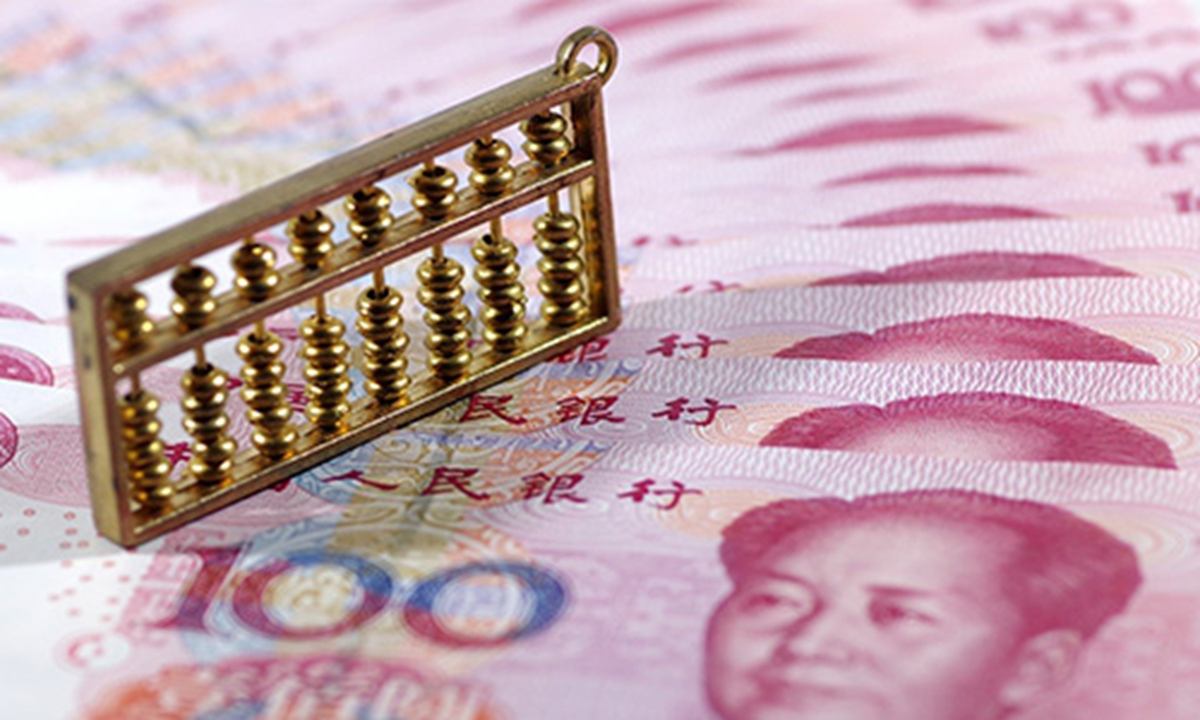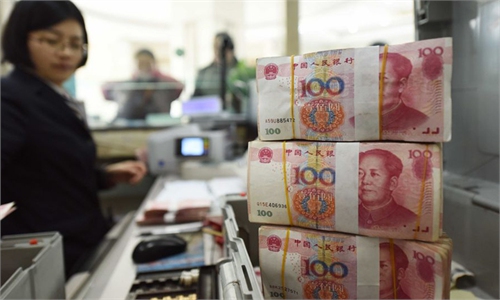
Photo: VCG
Chinese yuan-denominated bonds are being snapped up by global investors. Overseas investors held a total of 3.06 trillion yuan($473 billion) of Chinese bonds in January, up 62.09 percent from the same period last year and a gain of 5.96 percent from the end of December, according to the latest data from China Central Depository and Clearing Co. January also marked the 26th consecutive month that foreign investors racked up their holdings of Chinese yuan-denominated bonds.Investors' rising interest in purchasing Chinese bonds reflects a more objective and pragmatic approach toward the Chinese economy, which overcomes the political and ideological bias and may explain why China remains a premium engine of the world's economy.
From the perspective of financial professionals, the main reason for foreign investors to buy Chinese bonds is rooted in their bullish view on the Chinese economy.
A slew of major economic indicators are sufficient to tell the resilience of China's economic fundamentals despite the strong headwinds caused by the coronavirus pandemic last year. China's GDP in 2020 expanded 2.3 percent, making it the first major economy to recover globally.
Even in the coronavirus-plagued globe, the country's foreign trade still experienced a hard-won gain. Foreign direct investment into the Chinese mainland also hit a new record in 2020.
The appeal of Chinese yuan-denominated bonds also comes from their relatively low risk and better yields, making them an attractive "safe haven" asset for overseas investors amid the generally low yields of fixed income investment.
Moreover, continuous financial market reform has also accelerated the buying pace of foreign capital. So far, all of the world's three main index compliers have decided to add Chinese sovereign bonds to their indices, with Bloomberg Barclays and JP Morgan already making the move.
Although on an economic level, global confidence in the Chinese economy is evident, on the political front, the attitude of some Western countries toward China remains ambiguous.
US President Joe Biden's China policy on a wide range of issues has been the focus of all global watchers recently.
White House spokeswoman Jen Psaki said last week that President Biden wants to approach US-China relations with "patience," noting that White House would be engaging with Republicans and Democrats, as well as its international allies and partners addressing the issue in coming weeks.
Some observers believe the spokeswoman's remarks may suggest a US intention to unite allies on China-related issues. Yet, the recognition China has won in its economic achievements and Beijing's consistent multilateral approach indicate that past ideological barriers are not insurmountable.
If Washington is stubbornly tethered to dividing the world into two groups and intent on containing China's economic rise, other governments are more likely to say no to the White House. After all, peace and prosperity are what our world needs.



